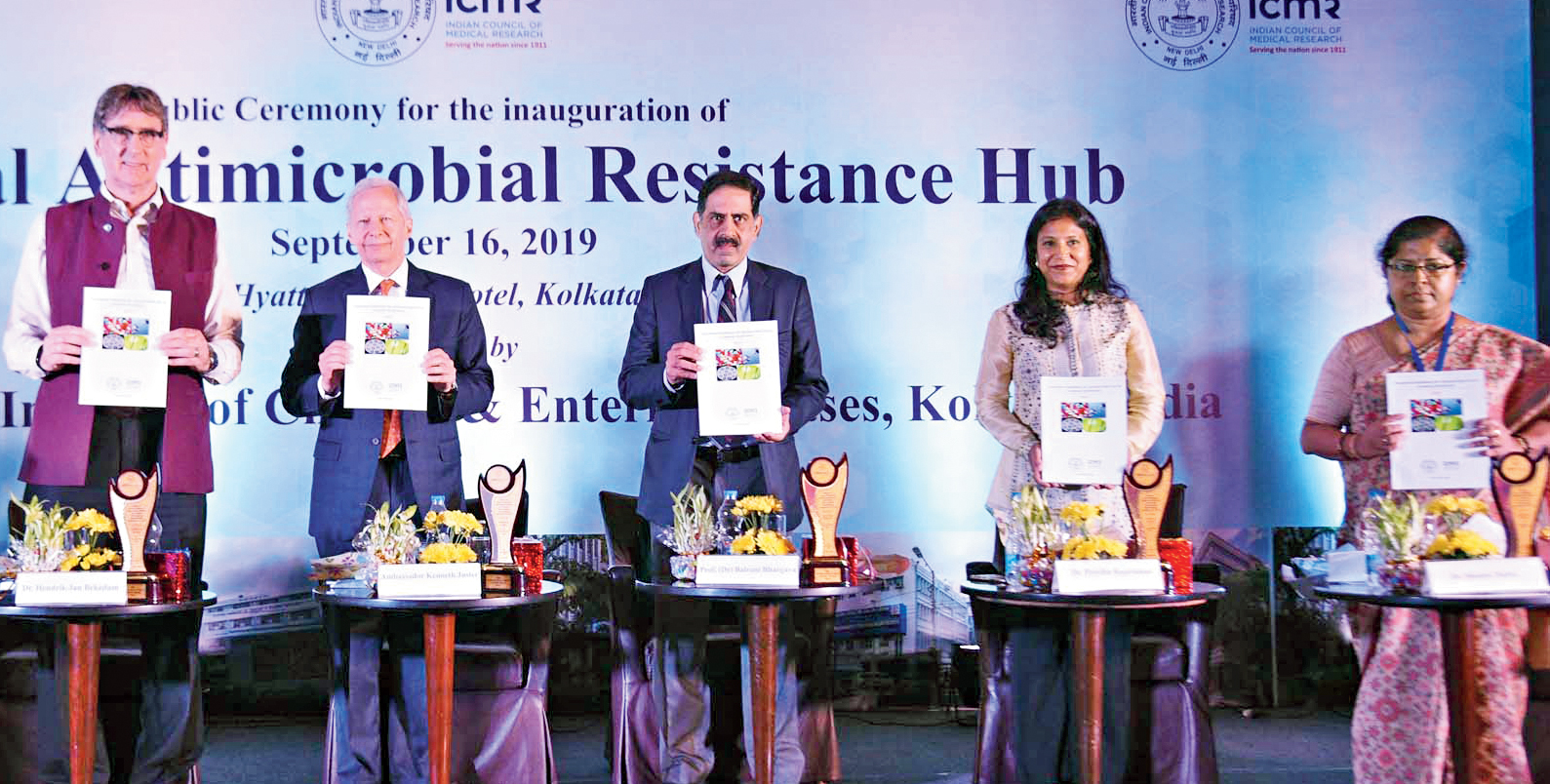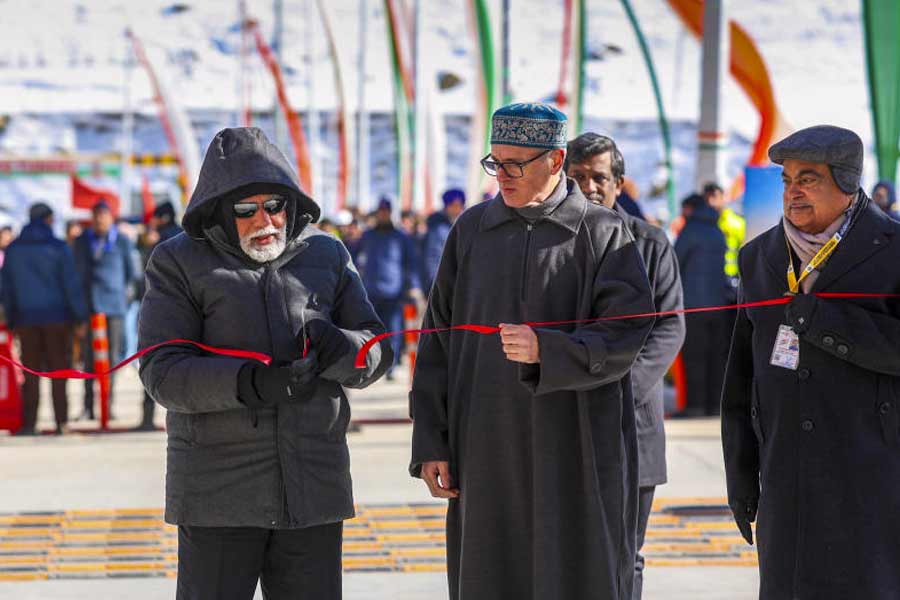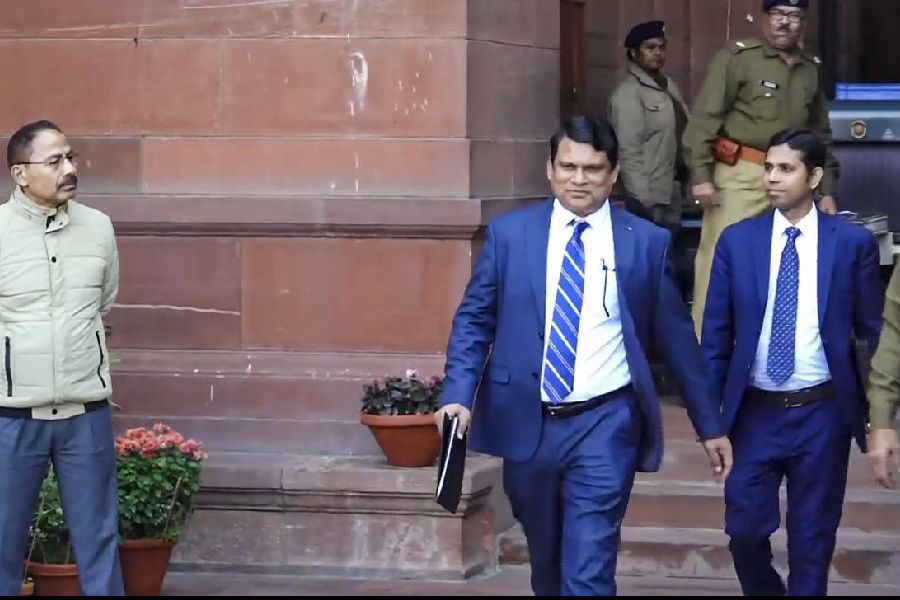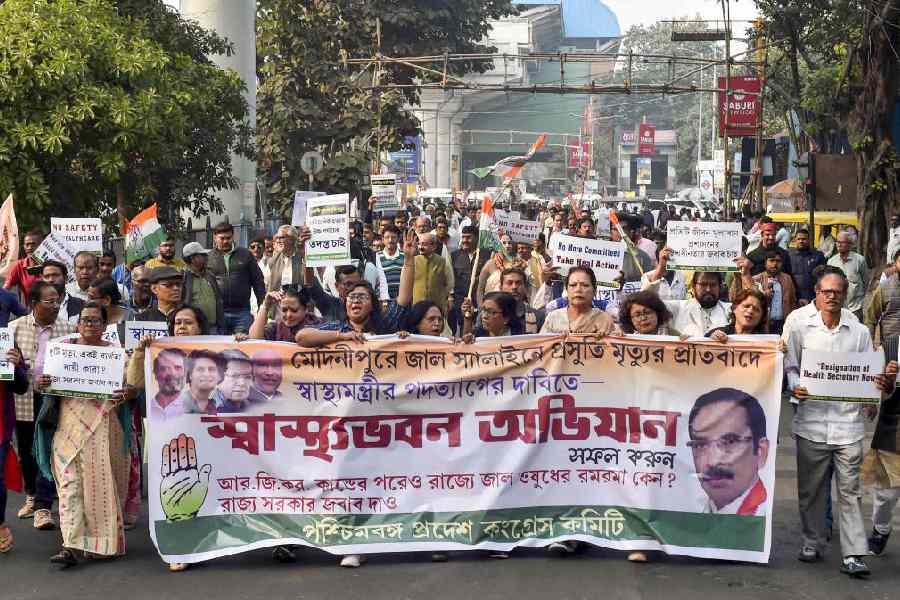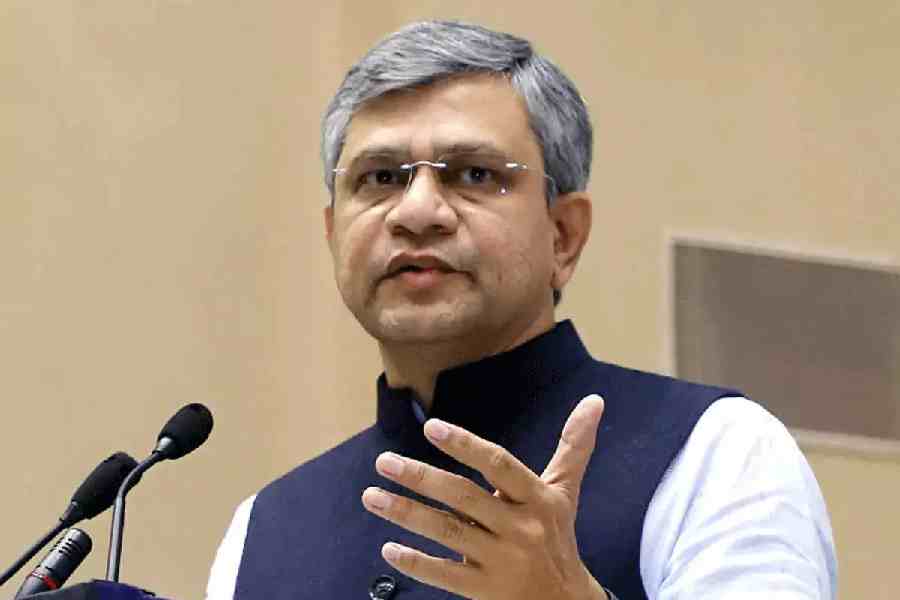A city institute will become a hub of research on how to prevent strains of bacteria from becoming resistant to antibiotics.
As part of the hub, coming up on the National Institute of Cholera and Enteric Diseases (NICED) campus in Beleghata, there will be a repository of antibiotic-resistant bacteria strains for research. The institute functions under the Indian Council of Medical Research (ICMR).
The repository will be the first of its kind in the country, speakers said at a programme organised to mark the launch the facility, Antimicrobial Resistance (AMR) Hub
Doctors warned that if indiscriminate use of antibiotics was not stopped, a situation would arise where people would die despite there being medicines for the diseases they were suffering from.
The US will share knowledge and provide help in capacity building for the hub, said Preetha Rajaraman, the health attaché at the US embassy in Delhi.
Kenneth I. Juster, the US ambassador to India, was present at the inauguration.
“Indiscriminate and irrational use of antibiotics is a big problem. If antimicrobial resistance sets in, it can kill us ruthlessly,” said Balram Bhargava, the director general of the Indian Council of Medical Research (ICMR), the apex body of biomedical research in India.
Bhargava said the problem was more pronounced in developing countries where the regulations on antibiotics are not stiff enough.
“In the US or UK, a doctor will prescribe a basic antibiotic first and will go for a higher antibiotic only if the basic one fails. But here doctors often prescribe higher antibiotics right at the beginning because we want fast action,” Bhargava said, while explaining how the resistance develops.
NICED has started storing strains of drug-resistant bacteria in its repository. A scientist at the institute said the bank would grow over the years and they would approach medical establishments to send them resistant strains.
“If a new antibiotic is developed, it has to be tested against bacteria strains that have become resistant to many antibiotics. How will someone get a resistant strain if it is not stored somewhere? That is the reason why the repository is being created,” the scientist said.
The repository is only one part of the AMR hub. NICED director Shanta Dutta said the hub would serve several other purposes, too, including co-ordinating all AMR-related research across the country.
“The research outcome from the hub will be used to frame policies. We will pass on the outcome to the policy-makers,” she said.
The hub will focus on, among others, research on developing alternatives to antibiotics, such as bacteriophage. A bacteriophage is a virus that infects and replicates inside a bacteria.
“It will also plan and manage India’s anti-microbial stewardship programme,” a scientist said.
Bhargava said the AMR hub had been set up at NICED because it was a star among all ICMR institutes.
Juster said India and South Asia had the highest AMR burden in the world. “If this is not controlled, the world can return to the pre-antibiotics age when people routinely died from common bacterial infections,” he said.
Rajaraman said the Centre for Disease Control and Prevention (CDC) and the National Institutes of Health (NIH), two premier medical research centres of the US, had started working with the ICMR in various capacities.
“We will be glad to work with the AMR hub, too,” she said.

